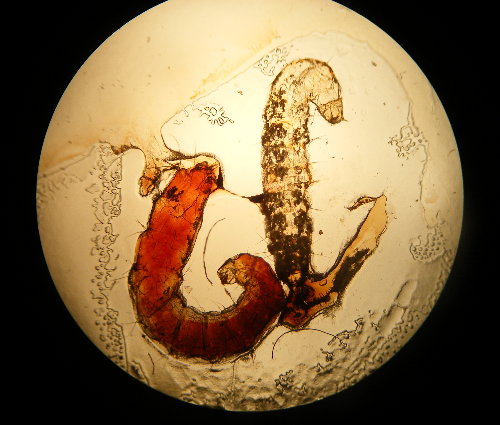Difference between revisions of "Clinical Case 10"
Jump to navigation
Jump to search
| (One intermediate revision by one other user not shown) | |||
| Line 21: | Line 21: | ||
| − | |||
| − | |||
| − | |||
| − | |||
| Line 36: | Line 32: | ||
<big><center>[[Cases from General Practice - Small Animal|'''BACK TO CASES FROM GENERAL PRACTICE - SMALL ANIMAL''']]</center></big> | <big><center>[[Cases from General Practice - Small Animal|'''BACK TO CASES FROM GENERAL PRACTICE - SMALL ANIMAL''']]</center></big> | ||
| − | |||
| − | |||
| − | |||
Revision as of 20:58, 25 February 2008
Courtesy of C. Antonczyk
Signalment
The owner of "Snowy" and "Blackie", two DSH cats, has brought them in for vaccination.
History
The owner reports that he is happy with his pets' health, but he is concerned they may have worms. While cleaning one of their beds, the owner noticed some white organisms at the bottom of the bed which were a few millimeters in length and look grossly like maggots. He has brought some of these in to show the vet.
The vet examines these organisms under the microscope:
This image is taken under the x4 objective
What are these?
- These are flea larvae which may be found in the homes of animals infested with fleas. It is not unusual to find flea larvae when shaking out the bedding and, mixed with the dark faeces of the adult fleas, the debris from the animal's bed can be described as having a salt and pepper appearance.
What would you treat the animals with?
- The cats should be treated with an product that will kill adult fleas, and the environment should also be treated with an effective flea spray.
